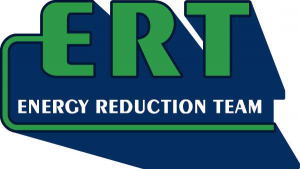Choosing the right boiler can make a huge difference to your energy bills
Heating accounts for about 60% of what you spend in a year on energy bills, so an efficient boiler makes a big difference. Modern boilers are more efficient for several reasons, but their main advantage is that they are all condensing boilers. All well-maintained boilers burn their fuel very efficiently, but they inevitably lose some heat in the hot gases that escape up the flue. A condensing boiler has a larger heat exchanger, so it recovers more heat, sends cooler gases up the flue and is more efficient.
Sometimes the flue gases get so cool that the water vapour in the gas condenses out, hence the name, and even more energy is recovered from the condensing vapour.
What should I consider when replacing my boiler?
If it is time to change your boiler, you need to decide what type of boiler is right for you. Here are some things to consider:
Fuel type
There are a number of fuel types for boilers such as gas, LPG, Oil, solid fuel, biomass and electric boilers.
Natural gas
Gas is the most common fuel for heating the home and it’s available in two forms, natural gas and LPG.
Natural gas is piped to your home via a supply company. It is a very convenient and you will not run out of fuel for your heating. Natural gas can cost a lot of money to get connected if it is not yet connected to your home. You can install a gas central heating system yourself, but will need a gas safe (corgi) registered installer to make the connection to the gas supply. A wide variety of heating systems that can be powered by gas, such as combi boilers, back boilers, wall heaters, etc.
LPG
Many properties across the UK don’t have access to mains gas. Those without access can still run their home on gas, but it will be in the form of LPG (below) and will be more expensive than accessing it from the mains.
LPG is an alternative to natural gas where it is too expensive or impractical to get natural gas. LPG is supplied to your home via large cylinders which are orange in colour and are roughly 4 feet tall. Usually, you will be required to have two of these cylinders which must be fitted with a valve to switch between the two, gauges are not installed on them to tell you how full they are therefore I one is empty you can switch to the second cylinder. LPG works in exactly the same way as natural gas, but you will need a boiler that can be made compatible via a conversion kit.
Oil
If you live in the countryside, many homes are not connected to the grid and still rely on oil boilers which is one of the best value alternatives to gas boilers. Most oil boilers use kerosene as a fuel and are floor standing. Like gas boilers, they also come in both combi and heat only condensing styles. In most cases for an oil boiler a tank will need to be installed outside of the house. These tanks are usually large and hard to disguise. You have to conform to a variety of regulations in sighting it for example not close to shrubs etc. If you let it run out, you will need a heating engineer to re-prime the system before you can get it operating again.
Often when considering types of boilers, we immediately think of oil, electricity or gas boiler. However, there are alternatives such as a boiler that runs on solid fuel. A solid fuel boiler runs on what is referred to as “solid fuel”, which can take many forms including coal, wood, paper etc. There are some solid fuel boilers which run the same way as other fuelled boilers and use automatically fed pellets from a hopper situated outside the house. A solid fuel boiler some people say can be an aesthetically pleasing system that could provide cheaper energy bills as the costs of fuels rise. Solid fuel heating boilers are mostly limited to back boilers, or kitchen ranges. Most solid fuel heating systems are inefficient as they consist of open fires and can be described as a messy alternative to a “clean” gas boiler.
Solid fuel
Another type of solid fuel boiler, which currently still receives the feed-in tariff, is a biomass boiler. A biomass boiler or wood boiler, is the other main alternative and, as the name suggests, relies on wood pellets, chips or logs to generate heat. If you have a biomass boiler you are also eligible for the renewable heat incentives – the feed-in tariff. The main issue with biomass boilers is that not many homes are suited to them, as they are expensive to install and a lot of space is needed due to their size. The carbon dioxide given off by wood pellet boilers is similar to that absorbed by new plants, so it is a sustainable fuel. They emit around 3 tonnes fewer of carbon dioxide a year compared to a gas boiler. Pellets are the most practical solution for biomass boilers even though logs are cheaper, as they can be automatically fed in to the system. Wood pellet boilers are cheap in comparison to the other alternatives, costing an estimated £600 a year to run, and are energy-efficient. The Energy Saving Trust estimates installation costs between £7,000 and £13,000 and a tonne of wood pellets can cost under £200. Unlike gas or oil boilers, a wood pellet boiler will generate ash, so you will have to empty it out approximately once every week. The ash may be self-cleaned depending on the boiler, but if it is not kept clean, it could shut down. Biomass boilers tend to be bigger than gas or oil boilers and you will also need somewhere to store the heating fuel. It will need a flue or chimney, which may mean that planning permission is requires, so be sure to check the regulations for the property in advance. The flue pipe or chimney must be maintained to keep it clean of soot deposits. A supplier for pellets, must be sourced and they are not as easy as other fuels to find.
Electric
Until recently, effective electric central heating was limited to storage heaters or blown air systems. Electric boilers run off cheap rate electricity supplied in the small hours and in some cases, for a short top up period in the afternoon. Though storage heaters (the most popular) are reasonably efficient they have a problem of being on all the time, so if you have a hot day after a cold day in the winter, you will have heating even though you don’t need it. They are also susceptible to drafts which can discharge them very quickly indeed. A new form of electric powered heating has appeared recently in the form of electric heating boilers. These can directly replace other boilers in conventional heating systems; they are very compact, light and can be run off cheap rate electricity. Another benefit is that they are completely silent.
Boiler type
Most old gas and oil boilers are regular boilers that have a separate hot water cylinder to store hot water, rather than providing it directly from the boiler. When you replace your boiler you can buy a new regular boiler, and keep your hot water cylinder, or buy a combi-boiler that doesn’t need a cylinder.
A regular boiler is more efficient than a combi at producing hot water in the first place, but then some heat is lost from the hot water cylinder, so a combi may be more efficient overall. Which is better for you will depend on different things:
- Your hot water usage
- Large families using lots of hot water are likely to be better off with a regular boiler, whereas smaller households using less may be better off with a combi-boiler.
- Space in your home
- Combi-boilers don’t need hot water cylinders, and therefore require less space in your home.
- Compatibility with solar water heating
If you’re thinking of installing solar water heating, it’s worth noting that many combi boilers are not compatible with this heating system or cannot use it so effectively





